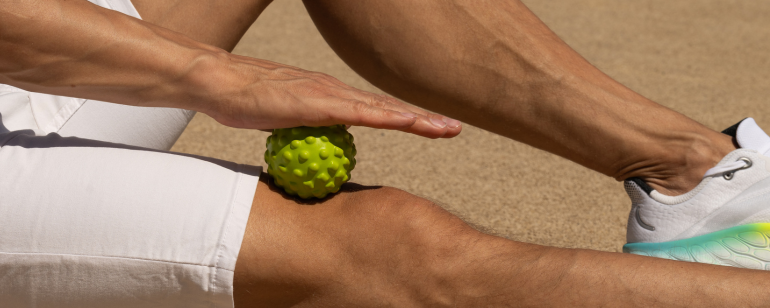Pain in the knee does not automatically mean that an operation is necessary. Many meniscus injuries can be successfully treated with targeted physiotherapy. At our practice in Berlin-Mitte, we see patients every day who benefit from a conservative approach.
Treating meniscus problems without surgery
Pain in the knee does not automatically mean that an operation is necessary. Many meniscus injuries can be successfully treated with targeted physiotherapy. At our practice in Berlin-Mitte, we see patients every day who benefit from a conservative approach.
What is the meniscus?
The meniscus is a crescent-shaped cartilage disc in the knee joint. Everyone has two menisci per knee – one on the inside, one on the outside. They distribute the load evenly, stabilize the joint and act as shock absorbers.
Tears or wear can cause pain, swelling and restricted movement.

Causes of meniscus problems
- Abrupt rotational movements under load
- Sports injuries with knee twisting
- Gradual wear with one-sided load
- Misalignment of the legs (bow legs or knock-knees)
- Overload due to repeated kneeling activities
Older people are often affected by degenerative changes, while younger people are more likely to be affected by sports accidents.
When conservative therapy makes sense
Not every meniscus tear requires surgery. Physiotherapy is an effective alternative, especially for small or stable tears, degenerative changes or patients without a mechanical blockage. The aim is to reduce pain, improve mobility and restore the load-bearing capacity of the knee.
Procedure in physiotherapy
At Physiotherapie Berlin-Mitte Marsch, treatment begins with a precise analysis of joint function. We check:
- Mobility of the knee
- Stability and axle guidance
- Muscle strength in the thigh and hip area
- Gait pattern and load behavior
We then draw up an individual therapy plan.
Treatment approaches
- Manual therapy to promote joint mobility
- Strengthening exercises for thigh and hip muscles
- Coordination training to improve stability
- Lymph drainage, if swelling is present
- Everyday advice to avoid incorrect strain
The aim is to functionally relieve the knee and at the same time strengthen it for everyday stresses and strains.
Advantages of conservative treatment
- No surgical risk
- Faster return to everyday life
- Preservation of the natural joint structures
- Adaptation of therapy to personal needs
For many patients, conservative therapy is also a way of delaying or avoiding surgery altogether.

What you can do yourself
- Avoid overloading, especially deep squats and twisting movements
- Regular strengthening exercises for leg and hip muscles
- Even strain in everyday life, e.g. when climbing stairs
- Cooling for acute complaints
Conclusion:
Meniscus problems do not automatically require surgery. Targeted physiotherapy treatment can reduce pain, improve function and ensure long-term resilience of the knee. At Physiotherapie Berlin-Mitte Marsch, we develop an individual treatment plan that is tailored to your everyday life and your goals.
